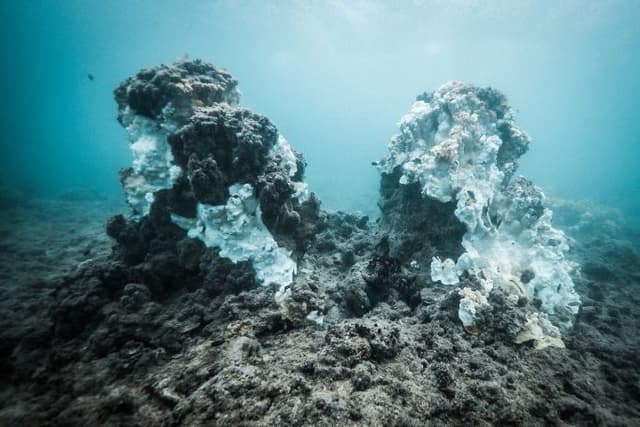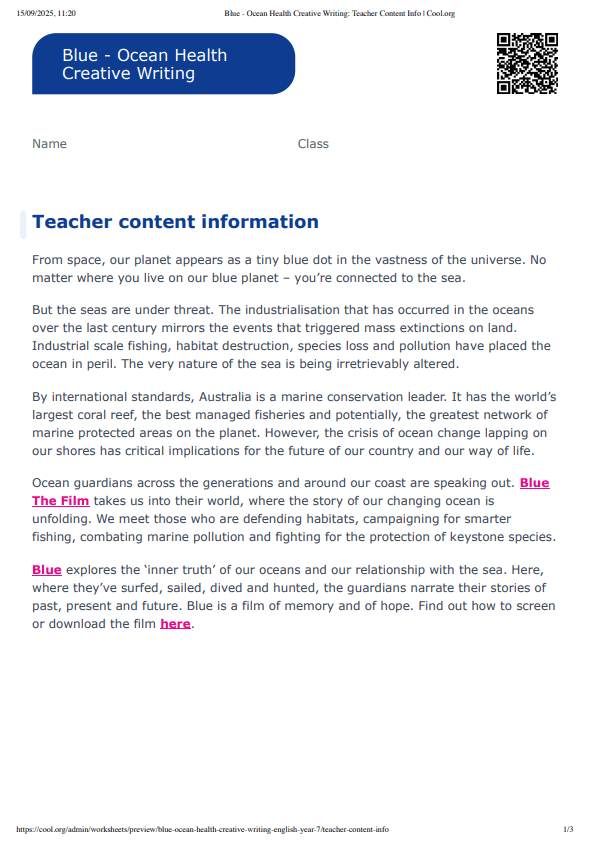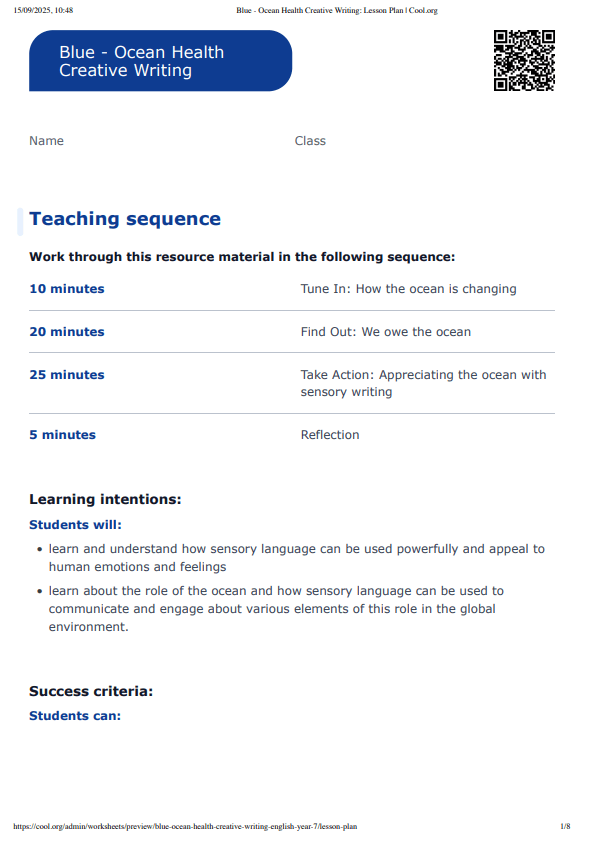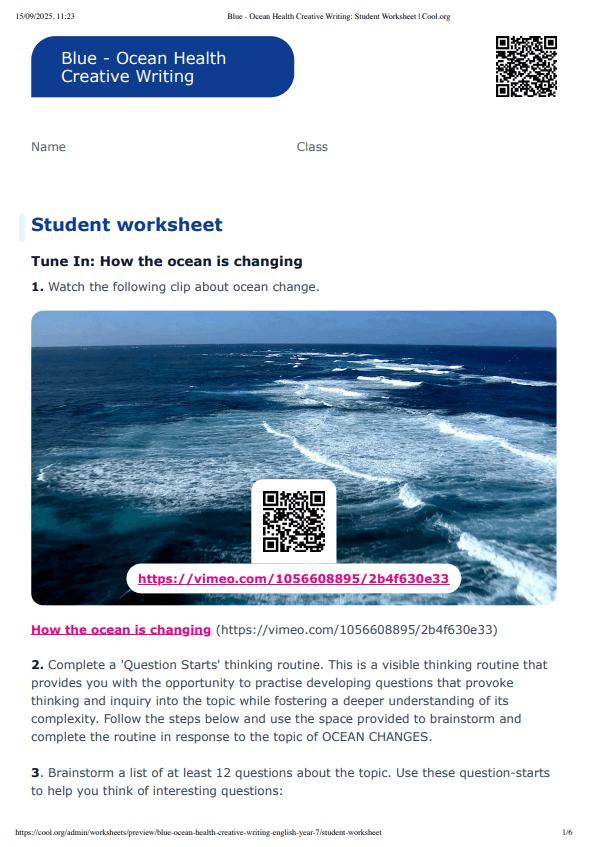
Blue - Ocean Health Creative Writing
Lesson4 of 10 in this unit
Year 7 - 8EnglishCreative writingLearning through filmEnvironmentalBiodiversityConservationOceansWater
Summary
Lesson Guides and Printables
Teacher Content Info

Lesson Plan

Student Worksheet
